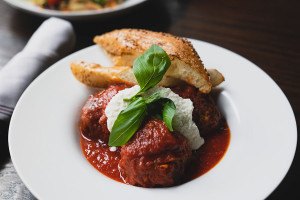Please Ignore This List – Our Insatiable Obsession with Philadelphia’s Restaurant Scene
What’s the worst thing that’s happened to Philadelphia’s restaurant scene? Our insatiable obsession with Philadelphia’s restaurant scene
I can pinpoint the exact moment when I went from zealot to naysayer. I was out to dinner in the city with a group of friends, and the talk at the table—as it inevitably does these days—turned to restaurants. You know … have you been here, who just left there to open that, and so on. The conversation lasted for 30 minutes, right through our just-muddled cocktails, past the warm house-baked bread, beyond the first round of seasonal small plates. No one paused, not even for a second, to comment on the food we were eating or the restaurant we were in. And that’s when I became a culinary curmudgeon. I realized that all of the excitement surrounding our food scene suddenly seems to have very little to do with the actual food. Talking about restaurants—whether you’ve actually been there or not—is now our city’s favorite topic du jour.
Backlash is an integral part of the trend curve. Things become cool, then popular, then saturated, then overwrought, and then over (cupcakes being the quintessential—and still inexplicable—exception). I’ve been writing about food in Philadelphia since interning at this magazine in 2004—I eventually became food editor—and was fortunate enough to be on the upslope of that curve. When I began covering food, Marc Vetri had one restaurant, and Jose Garces had none. But the hits kept coming, and fast. My food friends and I would rehash the progressions of courses and get giddy over perfected techniques, smart interpretations of classics, novel presentations, increasingly creative concepts. We were participating in a food scene that was getting richer, denser and more exciting by the minute.
But lately, the offerings, and the chatter surrounding them, feel vapid. True, eight years of food writing (and a brief stint in the restaurant industry) might have done me in. Still, I’m definitely not alone in my disillusionment. I’ve recently had conversations with fellow disenchanted eaters, and they all wind up in the same place: Has our food scene lost its soul?
There’s plenty to feed the frenzy. The amount of online coverage in this city dedicated solely to restaurants (not food, but restaurants) is staggering. Some sites are local branches of national outlets, such as Eater and Grub Street; others, like this magazine’s food blog, Foobooz, are homegrown. Like cable news, they have to fill their feeds.
I might even blame the editor in chief of this magazine, who recently told the guys behind Foobooz to “cover the city’s food scene like ESPN covers sports”—in other words, via hours of hypothetical commentary about games that have yet to be played. And so we are bombarded with slideshows of restaurant openings, chef movements and rumormongering, and updated winter menus. In other arenas, blogs and websites become popular because of their slant on the news. But most Philly restaurant websites are opinion-less. Readers don’t want think-y pieces, thoughtful commentary or opinions on the food or development of the scene; they want cocktail-party talking points.
Possibly the best example of this vacuous fever can be found in the tale of Federal Donuts. (I won’t waste space explaining what it is. Even my health-conscious mother-in-law, who lives in Florida, requested to eat there on a recent visit.) The concept is quirky, original, worthy of imitators, and fun. I’m a huge fan of things that come from the brain of chef Michael Solomonov—in fact, I named his restaurant Zahav the best in the city in this magazine in 2009. Some things at Federal Donuts are really good, but it’s not perfect. And yet, in coverage and conversation, you’d be hard-pressed to find a modicum of criticism. (It’s ranked 46th on this issue’s list of best restaurants.) People are downright evangelical about the place. I kept going back because I was sure there had to be something I was missing—or just didn’t get. When I started pressing my friends, really digging in, they all eventually copped to not liking something there. But they quickly brushed that aside. Flaws are irrelevant, because the place is just plain fun to talk about.
So if the food doesn’t matter, does that mean we’ve become New York or L.A. or London, where diners are notoriously fickle, always running to the newest thing? On one hand, Philadelphia has always proudly eschewed that bigger-city ethos—here, authenticity matters, and our best, favorite eateries, the ones that last, are built on it. It would be sad and out of character to lose that. On the other hand, New York and Los Angeles have culinary validation, no questions asked.
So I’ll allow that, possibly, this bubbling-over of empty chatter isn’t such a bad thing. If it has reached a tipping point, that means the food phenomenon here is big. No, huge. Huge enough to be an identifying, refreshingly modern cultural trait—one that will let us finally ban the word “Whiz.” National magazines can stop “discovering” us as a great food town. Visitors will plan sightseeing around their meals. It means the typical eatery has to be above average, and have a certain je ne sais quoi, in order to make it past a year.
That’s progress I’ll begrudgingly take. Even though I’d rather do a lot less talking about it and a lot more eating.

